While the Korean horror movie explosion of the late ’90s and early aughts occurred largely in tandem with (and perhaps in the shadow of) the post-Ringu flourishing of ‘J-horror’, it was arguably only after this Japan-centric wave of vengeful ghost stories and violent spectacles had peaked that horror’s South Korean branch genuinely came into its own, with 2016 possibly being the genre’s strongest year yet.
In the period since popular films like Ahn Byeong-ki’s Phone and the Whispering Corridors series strove to evoke a similar spiritual ghoulishness to the Hideo Nakata playbook, Korean horror has found a distinct voice, providing fresh and compelling updates on traditional sources of fear, from ghosts and vampires to the villains of fairy tales and theology to the good old-fashioned pyschos of this world.
Family is a common theme to much of what’s listed below, with a majority of these entries depicting parent-child and husband-wife bonds that are either potent embodiments of the film’s central horror or essential motivation to escape from this horror.
However, what truly grants Korean horror its distinct identity on the world stage just might be its fearless mixing of tones. These films run the gamut from gruesome to hilarious to grief-stricken, meshing ostensibly mismatched elements together as a reminder that horror, comedy and tragedy are all just different but overlapping forms of hyperbole that exist in the hysterical extremes of human experience.
10. Spider Forest (2004, dir. Song Il-gon)
Song Il-gon’s Spider Forest is a sordid fairy tale and subversive mystery where every fresh development is as likely confuse as it is to clarify. Exhibiting a strange structural and causal cyclicity akin to Lynch’s Lost Highway, the film doesn’t so much tell a story as create a cobweb-like tapestry of unreliable memories from the muddled mind of possible murderer Kang Min.
It’s a knowingly messy work whose lack of a consistent sense of emotional and thematic culmination stops the film from living up to its lofty ambitions. Nonetheless, it remains a compelling and enjoyably puzzling journey that tragically exposes how the fallible nature of memory has made it so difficult for a man to understand himself, let alone comprehend the cruel world he lives in.
9. Phone (2002, dir. Ahn Byeong-ki)
Premiering more than four years after Hideo Nakata’s seminal Ringu gave the ghost story an update, Ahn Byeong-ki’s Phone may have been a relatively late entry in the wave of Asian haunted technology horror flicks, but it nonetheless serves as an intriguing reminder of why this trend mattered in the first place.
When journalist Ji-won inherits a phone number carrying a mysterious and deadly curse, her quest to retrace the journey of this number via multiple deceased previous owners acts as a morbid reflection of our age of interconnectivity, with the curse ironically originating from a twisted tale of loneliness and rejection.
Though admittedly a bit of a mixed bag, Phone is generally at its most chillingly insightful when it is channelling the cold, sterile, hollow aesthetics of the Apple era through either its modern décor or its callous characters.
This is a film where the bodies of the past are quite literally buried beneath smooth, shallow and pretty surfaces and the living are selfishly consumed by the need to impose a pretty picture on a troubled reality. But the film’s most haunting image is the one that seems to offer some form of escape: the woman who mutilated her own eyes and ears, permanently cutting herself off from the audio and visual façades of the 21st century.
8. Hansel and Gretel (2007, dir. Yim Pil-sung)
Striking an unsettling balance of contradictory concepts and emotions, Yim Pil-sung’s Hansel and Gretel subverts the fairy tale conventions that have helped so many parents and teachers to scare the kids straight, turning candy-coloured images of childhood whimsy into conduits of fear and unease.
In a bizarre and fantastical limbo where time stands still, Yim puts his adult cast at the mercy of a child’s worst impulses, delving into the troubling implications of a world run by boys and girls who’ll never grow up, remaining fixed in the self-centred, short-sighted perspective of youth.
For the unlucky grown-ups, the garish “House of Happy Children” becomes a colourful prison of forced familial cheer, but Yim perhaps exhibits even more sympathy towards this comically creepy world’s young gatekeepers.
Through a rapturous climax across two parallel timespans, Hansel and Gretel brings its nightmare full circle back to the real world horrors that the witches and monsters of fairy tales were always intended channel, asking in the process why anyone would even want to grow up if this is what adults are like.
7. Thirst (2009, dir. Park Chan-wook)
For all the stylish ruminating around the themes of piety, religious guilt and martyrdom found in Park Chan-wook’s morbid vampire flick, Thirst operates best when it’s serving as a macabre relationship drama and a dark psychosexual parody of the mutually corruptive nature of marriage and family.
Through the endearingly dysfunctional central pairing of Song Kang-ho (showing a more dour, sinister take on the doofy persona he displays in films like The Host and The Good, The Bad, The Weird) and Kim Ok-bin (magnetic in her insanity), Park uses the classic vampire mythology to hyperbolise the dark desires cultivated within an unstable structure of monogamy.
The act of blood-sucking becomes a sad outlet for sadomasochistic urges, as Thirst reveals with ghoulish glee the desperate, lonely, unholy animals that lurk within us all.
6. Moebius (2013, dir. Kim Ki-duk)
Kim Ki-duk’s gruesome exhibition of the modern family is a horror film precisely because it chooses to present its debauchery in the package of a comedy, turning disturbing scenes of mutilation and rape into silent Freudian slapstick where the ultimate joke is existence itself.
As the story’s horrifying inciting incident would indicate, Moebius is in part a film about castration of both the physical and mental kinds, evoking misery, shame, humiliation and anxiety in every bizarre turn of events. In literally removing the phallus from the equation, Kim is free to explore the underlying psychology of sexuality through a series of weird, profound and wince-inducing images.
From the concerned father who discovers a new form of friction to help his son get his rocks off, to the boy jerking off a knife that’s sticking into his shoulder, Kim’s bizarre series of oppressively formal visual innuendos hauntingly evoke inherent ties between lust, pain and guilt while serving as a tragicomic reminder of the pains people will go to for the sake of the almighty orgasm.
5. Train to Busan (2016, dir. Yeon Sang-ho)
Out of all the classic monsters that horror writers continually return to for the sake of the same tired metaphors and tropes, the zombie remains easily the most overused of the 21st century. That Yeon Sang-ho’s Train to Busan is an absolute blast regardless is a testament the director’s gleefully enthused craftsmanship above all else.
The build-up to the carnage in particular is immaculate in its pacing as an apocalypse erupts in the periphery of the life of emotionally distant, divorced father Seok-woo. Through this cold and neglectful lead, the film’s Romero-esque themes of cooperation find their focus as a warning against the dangers of indifference. Like the instinct-driven zombies, people have a tendency to only care about what’s directly in front of them, be it in issues of class, the environment or rabid, flesh-eating people.
Once the mayhem truly kicks off, Yeon makes thrilling physical comedy out of the sheer volume of attackers as armies of bodies – graceless as individuals, but dangerously effective as a unified mass – tumble over each other to reach the uninfected.
Like Bong Joon-ho’s The Host, Train to Busan is in many ways a case of Korean cinema beating the Hollywood blockbuster at its own game, delivering an exciting, crowd-pleasing mix of satire, sentiment and, above all, invigorating spectacle that’s as likely to provoke delirious laughter as it is to frighten.
4. A Tale of Two Sisters (2003, dir. Kim Jee-woon)
Kim Jee-woon’s (maybe-)ghost story of stepmother-stepdaughter conflict could’ve been a perfectly gripping spooker thanks to its ghostly décor, pensive pacing and the subtle craft by which Kim retains an eerie underlying tension and mystery throughout.
But as the narrative moves into ever stranger and more fractured territory, it becomes evident that the film holds riskier and more rewarding goals than delivering easy jump-scares and straightforward heebie jeebies.
A work that consistently demands your careful attention, A Tale of Two Sisters is a slippery, psychosexual tale of subjectivity, miscommunication and emotional repression that’s Lynchian in its ambiguous clue-dropping and confusion of identities. And while even a close reading of this disorienting family drama may not yield every answer you seek, it’s clear that whatever objective truth is buried under these layers of insanity is one that is crushingly, unspeakably sad.
3. Bedevilled (2010, dir. Jang Cheol-soo)
Arguably the best minute of Jang Cheol-soo’s poignant, upsetting, often grimly humorous and increasingly delirious tale of rural domestic hell is its final minute, in which the prostrate form of cold, clean businesswoman Hae-won visually dissolves into the hilly shapes of the southern island of Mudo.
It’s a pitch-perfect conclusion to a film that takes its guarded, passive lead on a voyage that demonstrates the hard way how no man or woman is an island, exposing the selfishness implicit in a life of dogged independence.
When Hae-won journeys to Mundo, she soon discovers it to be a pitiless matriarchal society that ironically enforces aggressively patriarchal gender roles in the relationship between the physically abused, perpetually downtrodden Bok-nam and her loathsome husband. Though Hae-won starts off as a mere witness to the mounting cruelties heaped on her old friend and her friend’s daughter, she soon becomes shamefully complicit in the island’s silence.
When the tables finally turn for Bok-nam, it’s impossible not to take sick pleasure in the brutal vengeance that takes up much of the film’s final third, but the feeling that truly lingers beyond the ending credits of Bedevilled is one of sorrow and regret from the suspicion that this could all have turned out so differently.
2. The Host (2006, dir. Bong Joon-ho)
While many of this list’s entries see an inspired blend of seemingly incompatible tones and visuals for the sake of an unsettling and harshly seriocomic impact, the brilliant combination of moods found in Bong Joon-ho’s Korean megahit are employed to more inviting ends, adding up to an accessible and all-inclusive blockbuster package that comfortably outshines its bigger-budgeted Hollywood equivalents.
Throughout the lovably flawed Park family’s mission to rescue one of their own, Bong balances out exciting set pieces with some hilariously undignified images – most of them with a bumbling Song Kang-ho at the centre – but even the film’s most comical moments of idiocy can have boldly tragic consequences.
Like all the best monster movies, The Host applies a layer of social commentary to the action, channelling a neglectful government’s dubious dealings with the US at the expense of the Korean people on society’s lower rungs. But the fundamental thread that runs through the class-conscious comedy, drama, horror and satire alike is the emphasis on basic human needs over cynical political interests.
Through the prevalent motif of food, Bong conveys the frightening power dynamics that determine who gets to eat and who gets eaten, but in the struggles of the Park clan, we can also see how how family and companionship can provide the emotional and moral sustenance needed to survive the many monsters and predators of this world.
1. The Wailing (2016, dir. Na Hong-jin)
In a decade where it sometimes looks like horror cinema has lost all sense of vision and scope, Na Hong-jin’s muscular epic of good and evil feels like an indispensable reminder of what a horror film can be when it aspires to a level of dread well beyond your average Halloween night spine-tingler of the post-Creepypasta era.
None of this, however, is to say that The Wailing is a particularly self-serious work. In fact, it is the often exceedingly silly deep-rooted eccentricities of this feature that grant the film its engrossing personality. The film’s expansive two-and-a-half-hour-plus runtime leaves room to develop its distinct sense of place and explore the various quirks of its rural village. It’s only through a patient process of fleshing out the off-kilter logic of its world that The Wailing gradually shifts from the comically weird to the truly sinister as a suffocating satanic presence descends upon Officer Jong-goo and his daughter.
A work drenched in mood, Na Hong-jin’s film seems to take place in an eerie limbo between two extremes, where angels and devils each come in maddeningly ambiguous forms. It is an obfuscating reality where Jong-goo never knows whether his well-intentioned actions are helping his daughter or killing her.
The audience too isn’t exempt from the disorienting nature of this slide into blackness – Na’s oneiric storytelling cunningly plays with the viewer’s own memory, making them question whether they really saw what they saw. Even after the film has reached its devastating and pessimistic conclusion, you may still be trying to piece together everything you’ve just witnessed but amidst this confusing and rapturous chaos, Na crafts one of the most richly immersive and original horror films of recent years.

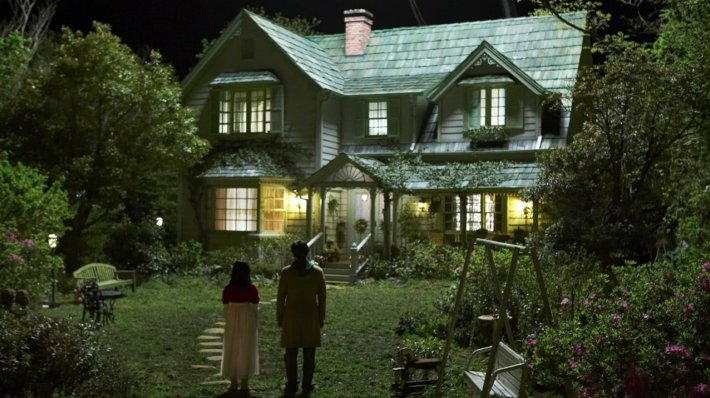
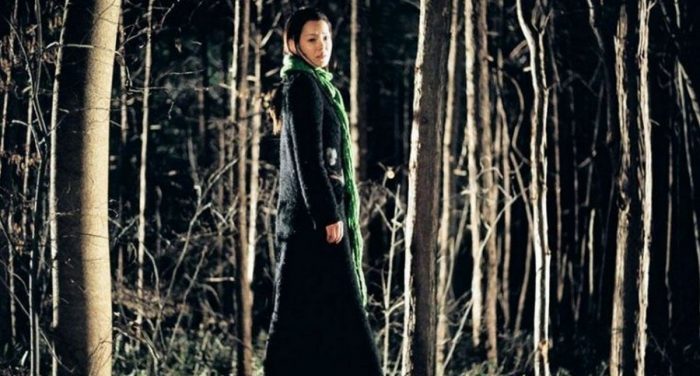
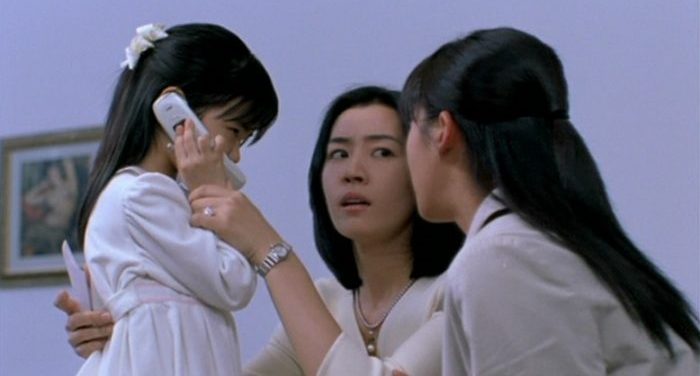
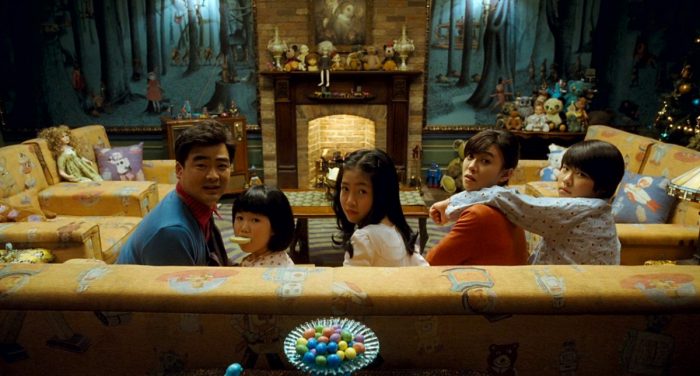
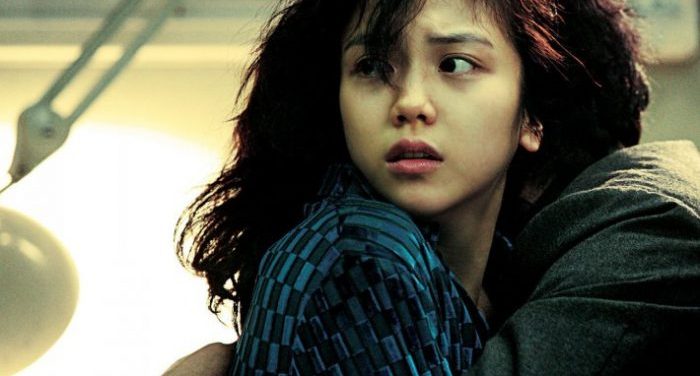
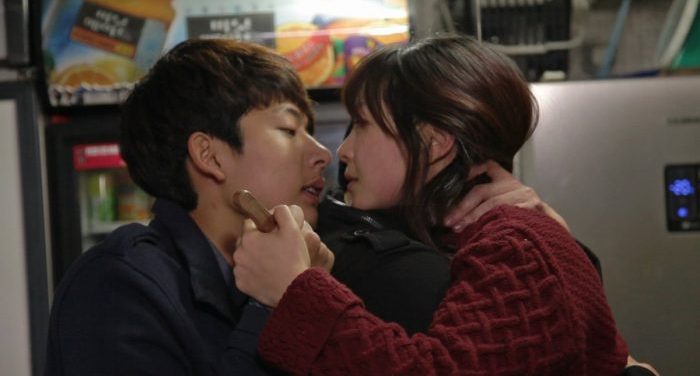
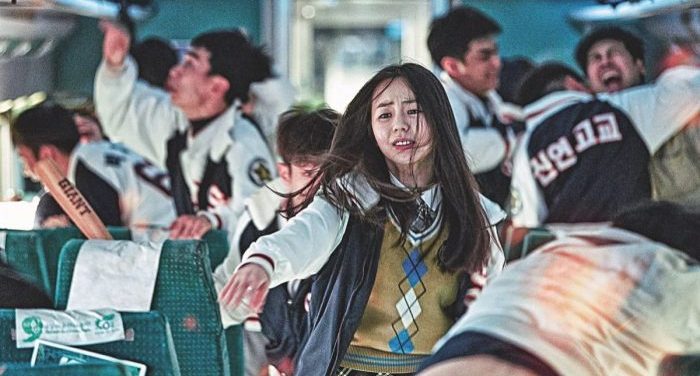
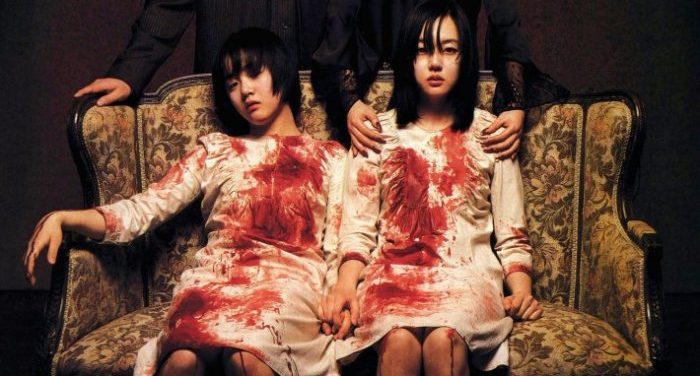
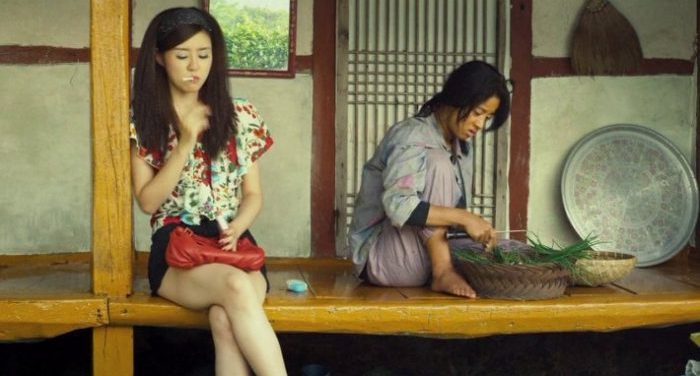
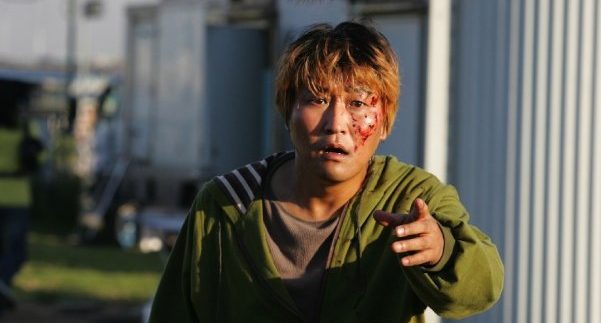
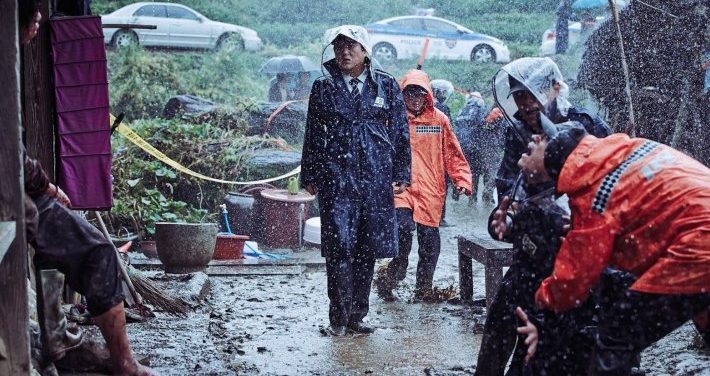


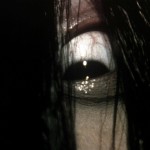



Useless article. Told me nothing about these movies at all. I want to know what they’re about, not your critical analysis of each. Practice your creative writing somewhere else.
You can click on the titles of each film to access a plot summary.